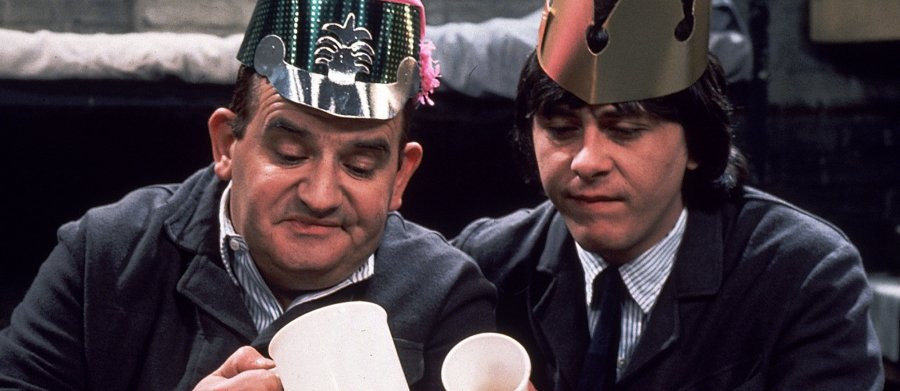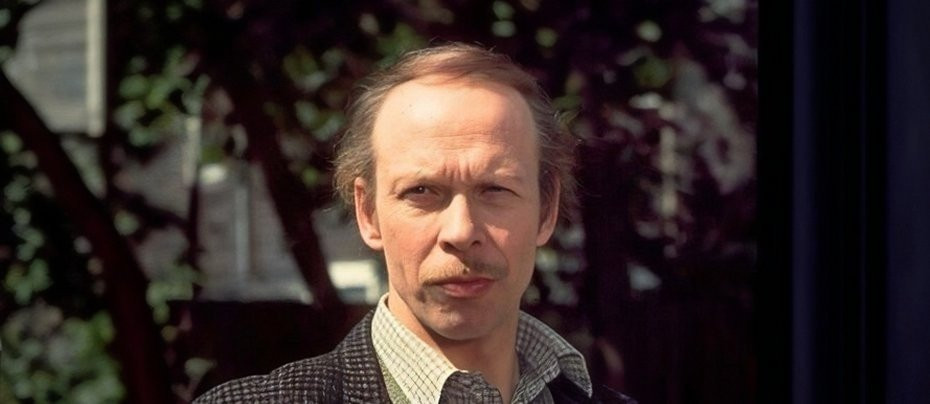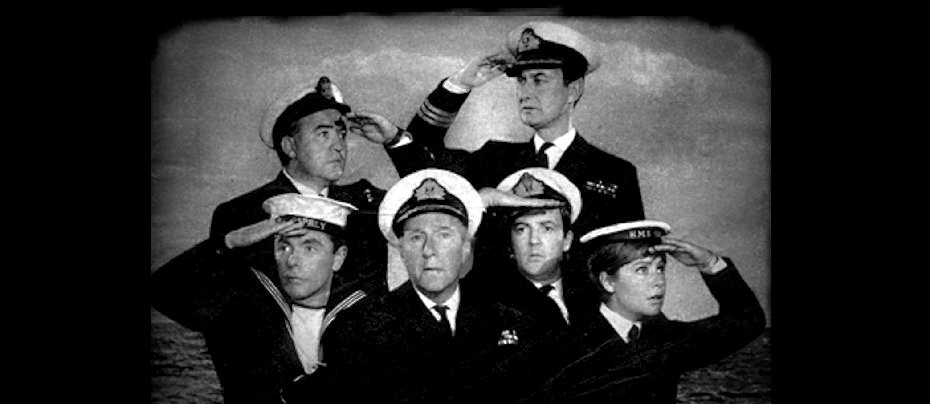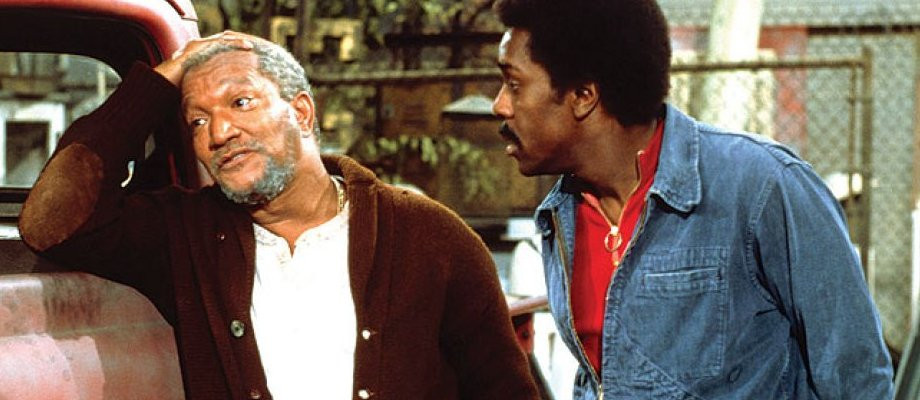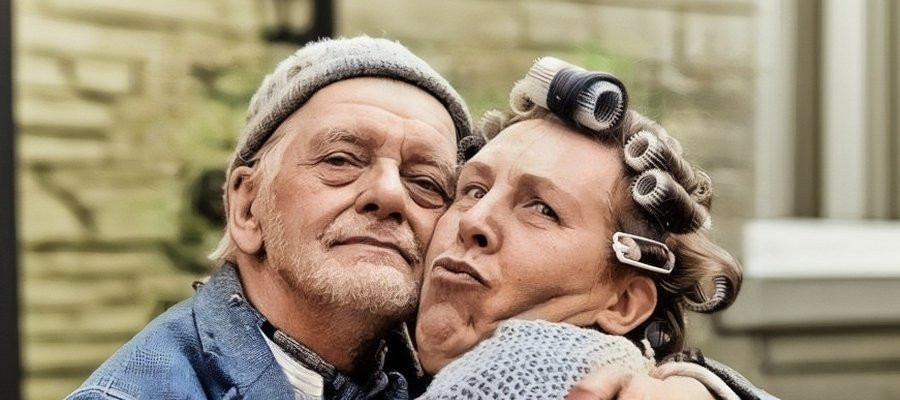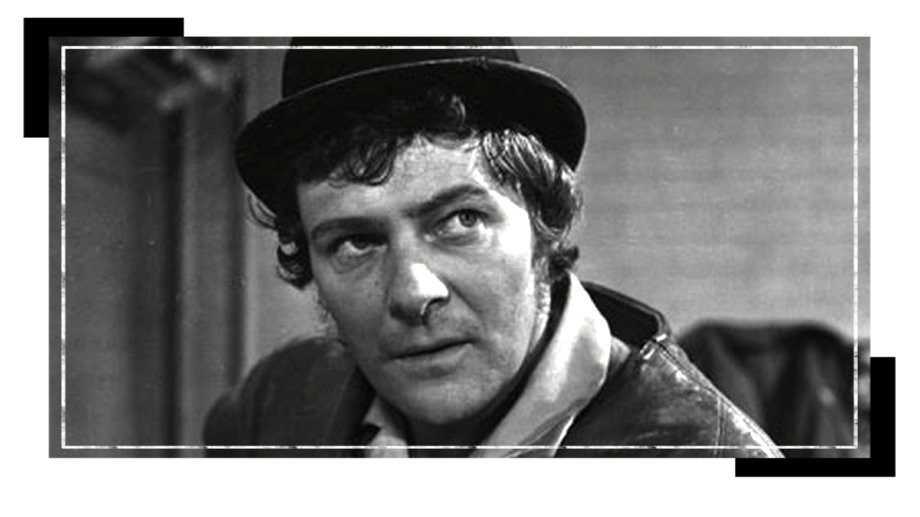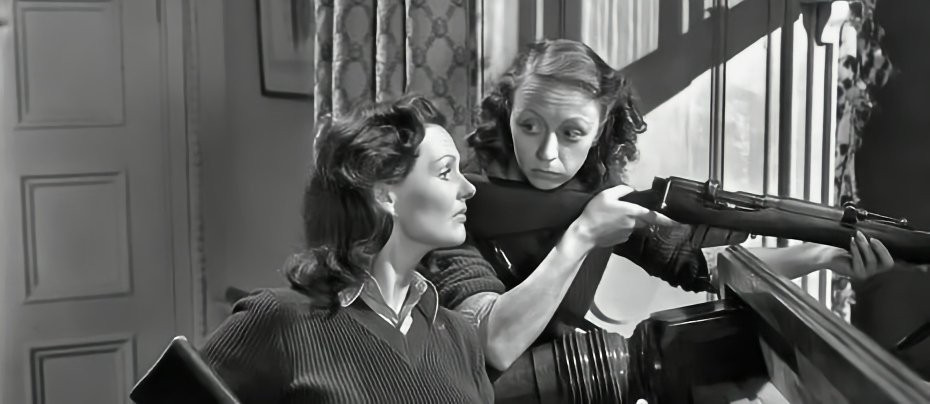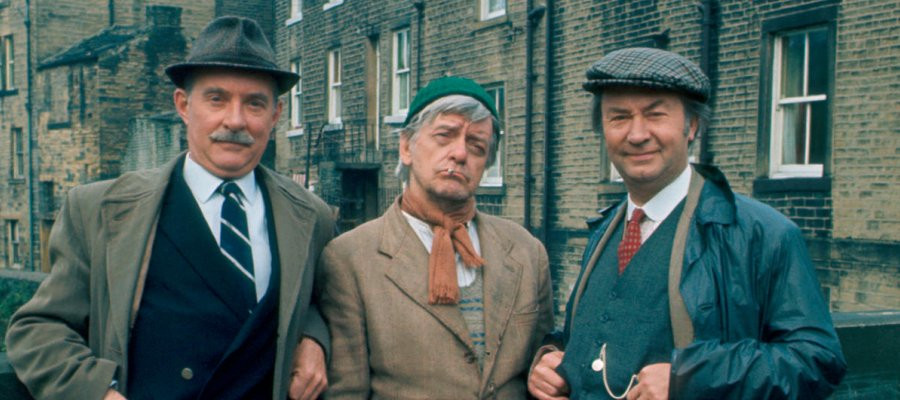
Last of the Summer Wine
1972 - United KingdomA Quintessentially British Triumph of Comedy and Charm
Few television series can lay claim to the sheer longevity, cultural resonance, and enduring warmth as Last of the Summer Wine, the gently whimsical comedy that graced British television screens for an astonishing 37 years. Beginning humbly in 1973 as a single instalment of the BBC’s Comedy Playhouse – an episode entitled Of Funerals and Fish, written by Roy Clarke – the series blossomed into a much-loved national institution, earning the honour of being Britain’s longest-running sitcom.
Set in the idyllic Yorkshire town of Holmfirth, the series chronicled the misadventures of a trio of eccentric retirees, who, rather than settling quietly into old age, chose instead to embrace life with a mischievous glint in their eyes and a childlike spirit of anarchy in their hearts. At the centre of the original lineup was the ever-scruffy and irrepressibly cheeky Compo Simmonite (Bill Owen), philosophical widower Norman Clegg (Peter Sallis – instantly recognisable as the voice of Wallace in Wallace and Gromit), and the pompous ex-military man Cyril Blamire (Michael Bates, known for It Ain't Half Hot Mum). These early episodes were marked by a poetic, often wistful tone, as the trio ambled through picturesque landscapes pondering the absurdities of life and old age with dry humour and Yorkshire stoicism.
Following Bates’ premature departure from the show due to ill health, the arrival of Brian Wilde as Foggy Dewhurst – a bombastic, self-styled war hero with a flair for tall tales – heralded a new era. The chemistry between Wilde, Owen, and Sallis was immediate and infectious, and it was this lineup that many consider the quintessential trio. With Foggy’s ludicrous schemes and Compo’s unrequited obsession with the formidable Nora Batty, played with relish by Kathy Staff, the show began to develop a broader comedic appeal, subtly shifting its tone from introspective musings to more physical, visual slapstick – though never losing its heart.
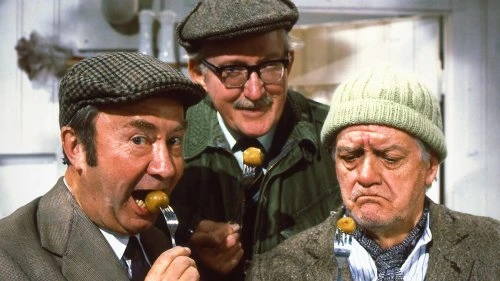
Roy Clarke’s genius as a writer lay not only in crafting characters with depth and charm, but in building a rich tapestry of supporting roles, each lovingly brought to life by a who’s who of British character actors. Dame Thora Hird, Stephen Lewis, Jean Alexander, and even guest appearances from the likes of Norman Wisdom added further flavour to this already heady northern brew. Every lane, pub, and hillside in Holmfirth seemed to be bursting with characters whose quirks and foibles were celebrated rather than mocked.
Throughout its run, the central trio evolved with changing times and cast departures. After Wilde’s departure, Michael Aldridge stepped in as Seymour Utterthwaite, the well-meaning if deluded inventor, and later Frank Thornton (best known as Captain Peacock in Are You Being Served?) joined as the gloriously ineffectual retired policeman, Truly of the Yard. The series managed these transitions with grace and humour, remaining rooted in its core values of friendship, laughter, and gentle rebellion against the indignities of growing old.
Perhaps the series’ most heartfelt challenge came with the death of Bill Owen in 1999. His portrayal of Compo had become iconic, a figure of national affection. Yet, in a bold and emotionally charged narrative turn, his real-life son Tom Owen was introduced as Compo’s long-lost offspring, Tom – allowing the show to continue while honouring Bill’s memory in a way that was both touching and narratively fitting. The episodes dealing with Compo’s passing remain among the most poignant tributes to a lead actor ever produced in television.
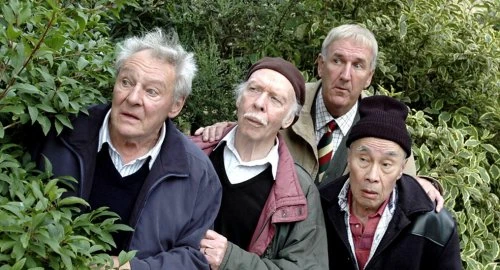
In its later years, the series introduced a new, younger trio – including Russ Abbot as Hobbo Hobdyke, Burt Kwouk as the enigmatic Entwistle, and Brian Murphy as Alvin Smedley – in a bid to refresh the format while retaining the older generation in supporting roles. Although this lineup never quite captured the lightning-in-a-bottle magic of the original, it offered a charming farewell lap for a show that had long since earned its place in the nation’s heart.
Last of the Summer Wine aired its final episode on 29 August 2010, but it remains very much alive through reruns on Gold and Yesterday, as well as in the hearts of millions both in Britain and across the globe, where it continues to be broadcast in over 25 countries.
In an age of fast-paced edits and high-stakes drama, Last of the Summer Wine stood out by doing very little, very well. It invited us to slow down, savour the moment, and laugh at life’s small absurdities. A rare gem of gentle humour and enduring humanity – a true British classic.
LAST OF THE SUMMER WINE SUPERFANS TURN QUEST TO WATCH AND REVIEW ENTIRE SERIES INTO BOOK
Following the success of their blog (summerwinos.co.uk), their 2018 Edinburgh Fringe show and their 2019 national theatre tour, writers Bob Fischer and Andrew T. Smith have released the first book of a multi-volume series, examining the finer details of legendary BBC sitcom Last of the Summer Wine.
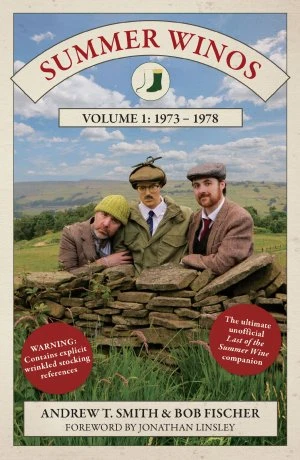
When two friends decided to watch all 295 episodes of legendary sitcom Last of the Summer Wine in order, they got more than they bargained for. Not just plenty of laughs, but also a fascinating look at 20th century British history through the eyes of Compo, Clegg, Blamire, Foggy and friends. This hugely expanded version of their popular Summer Winos blog sees Andrew and Bob reviewing the first five years of the show in depth, episode by episode. Expect giant carrots, mysterious matchboxes, wayward ferrets, catastrophic canoeing expeditions... and a little too much detail about the prices in Sid's Café!*
With extensive thoughts on each episode, contemporary reviews, 1970s audience feedback, newly-unearthed trivia and a foreword by Last of the Summer Wine's own Crusher, Jonathan Linsley, this is the ultimate unofficial companion to the formative years of Roy Clarke's classic BBC sitcom.
“Last of the Summer Wine is obviously a show that Bob and I adore," says Andrew. "I hope this comes across in the book and that like-minded fans can join us on our journey through the series. A journey that nobody asked us to make, but that we're nonetheless incredibly glad to have embarked upon.”
“It’s us overthinking everything, as usual!” adds Bob. “We’ve watched every episode from scratch, and have gone overboard looking into the tiniest details. From the strange careers of walk-on actors to the wrestling matches advertised on the posters in the café. We tried to treat every episode as a little time capsule of 1970s social history, and it’s been a fascinating journey.”
*Steak Pie 12p, Fish and Chips 25p, Tea 4p, Coffee 7p.
Summer Winos: Volume 1 is available from:
https://bobfischer.bigcartel.com/product/summer-winos-volume-1-1973-1978
The Summer Winos can be found online at:
Website: http://www.summerwinos.co.uk
Twitter: http://www.twitter.com/summerwinos
Facebook: http://www.facebook.com/summerwinos
Seen this show? How do you rate it?
Seen this show? How do you rate it?
Published on January 1st, 2025. Written by Laurence Marcus for Television Heaven.


